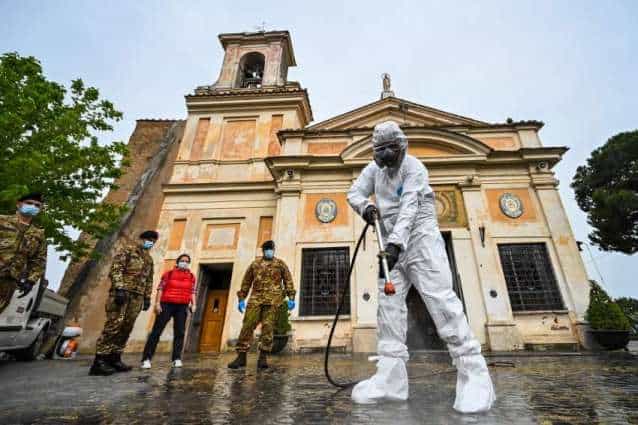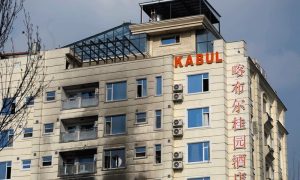NEW YORK – Spraying or fumigation of outdoor spaces, such as streets or marketplaces, is not recommended to kill the coronavirus or other pathogens, the World Health Organisation, a Geneva-based UN agency, says.
In an interim guidance titled, ‘Cleaning and disinfection of environmental surfaces in the context of COVID-19,’ the agency said this is because “disinfectant is inactivated by dirt and debris and it is not feasible to manually clean and remove all organic matter from such spaces.” It warned that spraying porous surfaces, such as sidewalks and unpaved walkways, would be even less effective.
“Even in the absence of organic matter, chemical spraying is unlikely to adequately cover all surfaces for the duration of the required contact time needed to inactivate pathogens.
“Furthermore, streets and sidewalks are not considered to be reservoirs of infection for COVID-19,” WHO said.
The agency also warned that spraying disinfectants, even outdoors, can be harmful for human health.
“Spraying individuals with disinfectants (such as in a tunnel, cabinet, or chamber) is not recommended under any circumstances.
“This could be physically and psychologically harmful and would not reduce an infected person’s ability to spread the virus through droplets or contact.
“Moreover, spraying individuals with chlorine and other toxic chemicals could result in eye and skin irritation, bronchospasm due to inhalation, and gastrointestinal effects such as nausea and vomiting,” the agency added.
According to WHO, COVID-19 is a respiratory infection caused by SARS-CoV-2 (COVID-19 virus).
“The COVID-19 virus is transmitted mainly through close physical contact and respiratory droplets, while airborne transmission is possible during aerosol generating medical procedures,” WHO said.
Transmission of the COVID-19 virus has been linked to close contact between individuals within closed settings, such as households, health facilities, assisted living and residential institution environments.
In addition, community settings outside of healthcare settings have been found vulnerable to COVID-19 transmission events, including publicly accessible buildings, faith-based community centres, markets, transportation, and business settings.
“In all settings, including those where cleaning and disinfection are not possible on a regular basis due to resource limitations, frequent hand washing and avoiding touching the face should be the Primary prevention approaches to reduce any potential transmission associated with surface contamination,” WHO said.














